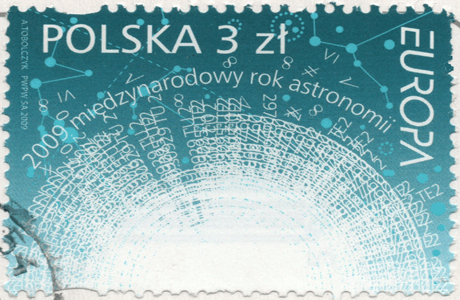The financial crisis has generally not been too kind to the emerging market economies of Central and Eastern Europe. As investors sought if not a flight to quality then a flight to comfort, money was pulled out of the smaller markets in favour of more established destinations, reducing liquidity and growth.
The financial crisis has generally not been too kind to the emerging market economies of Central and Eastern Europe. As investors sought if not a flight to quality then a flight to comfort, money was pulled out of the smaller markets in favour of more established destinations, reducing liquidity and growth.
Yet Poland didn’t do too badly. True, property values fell, unemployment rose and growth was subdued, but compared to some of its neighbours, conditions were fairly benign.
In a speech last year, the then-head of the International Monetary Fund, Dominique Strauss-Kahn, commended the market for its success during difficult times. “Sound macroeconomic and financial management allowed Poland to emerge relatively unscathed,” he said. “Indeed, Poland was the only economy in the EU to register positive economic growth in 2009.
“Naturally, given the tremendous diversity in the region, countries in emerging Europe have experienced the crisis very differently—ranging from Poland which virtually escaped recession altogether, to Ukraine, the Baltics, Romania and Hungary—all of which suffered severe downturns. What has made the difference in terms of a country’s response to the crisis has been the quality of its economic policies and institutions.
“In this regard, Poland stands out. Thanks to strong economic institutions and commendable policy management, Poland has avoided the excesses seen in many other countries in recent years. And because there was sufficient fiscal space to adopt temporary stimulus measures, the impact of the crisis on growth was lessened. Indeed, as the largest economy in the region, Poland is leading the economic recovery.”
But Poland’s recovery didn’t come from slavishly following the moves implemented by its neighbours to stem the crisis. At the time when countries across Europe were curtailing short selling activities as the financial mismanagement in Greece became increasingly clear, Polish regulators went the other way. Short selling was introduced in July 2010, the authorities believing that if the market was to encourage more international participants, then the need for hedging was paramount.
Short selling is permitted for:
shares participating in the WIG20 exchange index, or
most liquid shares outside WIG20 index with the value of free-float shares at least equal to PLN 300 million and average daily value of trading in shares in the last six months is at least equal to PLN 4 million, or
shares whose free-float value on the first day of trading represented at least 1 per cent of the value of free-float shares of all companies participating in so called liquidity ranking run by the WSE comparing however the shares may be subject to short sale under this criterion only for the next six months since the first day of trading, or
all government bonds listed on the WSE.
The list of securities available for short selling is published by the WSE on a daily basis from mid-June, 2010. By principle all securities that fulfil one of the above listed criteria should be available for short sale, although the Exchange Management Board may arbitrary not allow specific securities for short sale.
Each short sale order submitted to the exchange must include a special designation (short sale flag) to differentiate it from other broker’s orders. A short sale order will be automatically rejected in the following circumstances:
a short sale order is submitted for securities which, at the time of submitting the order, do not fulfil the eligibility conditions for short sale orders
securities which fulfil the conditions are subject to a temporary suspension of accepting of short sale orders (the Exchange by its decision may suspend the accepting of short sale orders).
The exchange can discontinue accepting short sale orders in case of a significant increase in settlement risk upon the statement from the NDS, or in the event of a significant decrease in the value of the WIG index or the price of individual shares during a given trading session in combination with a high share of short sale transactions in the value of trading in all transactions on the market (short sale circuit breakers). In particular cases when safety of the Exchange trading or interest of participants is considered, the Polish Financial Supervision Authority may request for suspension of accepting short sale orders.
Short sale orders will be suspended by the end of current trading session for all shares admitted to short selling if:
the value of the WIG index in relation to the reference value for the given session decreases by more than 3 per cent and
the share of the present value of trading in short sale transactions concluded in all shares available for short sale in the value of all transactions in these shares is greater than 20 per cent.
Short sale orders will be suspended by the end of current trading session for individual shares admitted to short selling if:
the price of the given shares in relation to the reference price for the given session decreases by more than 10 per cent and
the share of the present value of trading in short sale transactions concluded in the given shares in the value of trading in all transactions in these shares is greater than 20 per cent.
If the above conditions will be appear at the closing of a trading session the suspension will be extended by the end of the next trading session.
After the closing of a trading session, the exchange will publish information about the cumulative volume, value of trading and number of short sale transactions.
Short selling transactions can be concluded on the Warsaw Exchange by direct participants of the WSE upon a dedicated agreement signed with its local clearing Agent. The above requirement is stipulated by the Polish regulations (art.7.p.5a of Act on Trading in Financial Instruments).
It was a risky strategy. Poland effectively went against the conventional wisdom on most of continental Europe and although it has the back up of being part of the European Union, there were commentators who warned it could be dragged into the mire faced by Hungary and Romania, or even Greece if investors suddenly lost confidence in the market.
But this didn’t happen. While no-one would say the market boomed, it certainly has thrived compared to those of its neighbours. Poland has ambitions to become the major financial centre for Central Europe and a gateway into the East, and moves like this are certainly helping it along.
And it has brought more players into the market. Citi has been offering securities lending in Poland for a year, and in June Eurex lanched 19 single stock futures (SSF) on leading Polish companies on 27 June 2011. The new listings reflect customer demand for derivatives based on shares from one of the largest economies in Eastern Europe. The new SSF contracts will be based on 19 shares of the Polish blue chip index WIG 20 (except CEZ) and denominated in euro. The launch extends Eurex’s SSF offering with a new country, bringing the total number of covered countries to 21.
“As Eastern European countries become more and more important for our customers and investors, demand for products based on companies listed in these markets also increases. Therefore, we have extended our offering and launched contracts covering companies from one of the biggest Eastern European markets”, said Peter Reitz, member of the Eurex Executive Board. “Our current SSF suite gives customers greater flexibility in executing trading strategies in more than 850 names in Europe and internationally.”
The new Polish SSFs will extend the number of covered Eastern European and emerging markets to four. Volumes in Russian SSFs, the largest emerging market segment at Eurex, have risen steadily since their launch in 2007: In 2010, contracts totaled more than 680,000, while year-to-date volume is almost 300,000 contracts.
The specifications of the new contracts are comparable to the other European listings. Each contract represents 100 shares and is cash settled. They will have expiry dates up to three years for the next 13 calendar months, plus the two following annual contract months out of the December cycle. The new Polish single stock futures also are eligible for Eurex’s Block Trade Facility.
Meanwhile, The Warsaw Stock Exchange is working with the Polish National Depository for Securities on a platform which would facilitate and promote securities lending.
Exchange president Ludwik Sobolewski said the launch would coincide with further developments of the exchange’s existing futures market on the exchange.
“The turnover on the stock market this year should be satisfying as compared with last year,” said Sobolewski. “There will not be many large privatisation deals as in 2010. But the stock market is open longer, we are introducing a new strategy for the derivatives market and we are developing short sales. The market of IPOs is also flourishing.”


